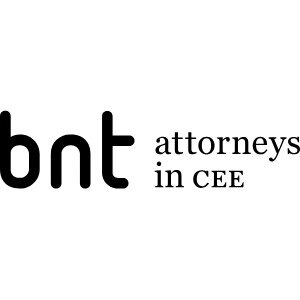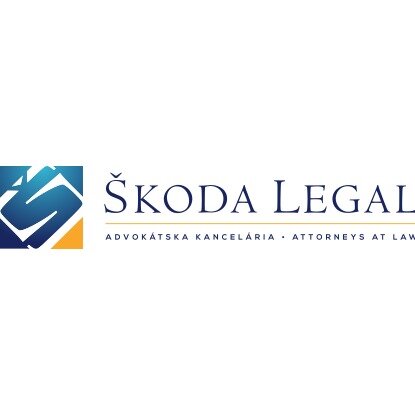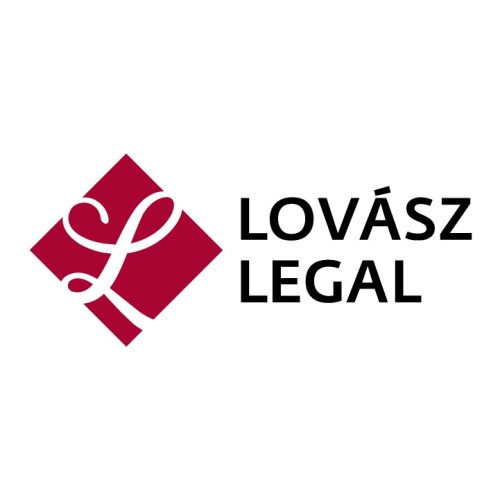Best Labor Law Lawyers in Bratislava
Share your needs with us, get contacted by law firms.
Free. Takes 2 min.
List of the best lawyers in Bratislava, Slovakia
About Labor Law in Bratislava, Slovakia
Labor law in Bratislava, Slovakia, is governed by a set of comprehensive legal statutes that regulate the relationship between employers and employees. The primary legislation is the Labor Code, which is designed to ensure fair treatment, equitable working conditions, and the protection of workers' rights. The Labor Code covers various aspects, including employment contracts, working hours, minimum wage, health and safety standards, and procedures for dispute resolution. As the capital city, Bratislava is a hub for economic activities and employment, making an understanding of labor laws crucial for both employees and employers operating within the city.
Why You May Need a Lawyer
There are several circumstances under which seeking legal advice in labor law may become necessary. Common situations include disputes over the terms and conditions in employment contracts, wrongful termination, issues relating to workplace discrimination, claims regarding unpaid wages or benefits, and breaches of occupational health and safety regulations. Additionally, businesses may require legal help to ensure compliance with local labor laws, negotiate collective bargaining agreements, and navigate complex employment legislation.
Local Laws Overview
The key aspects of local labor laws in Bratislava include:
- Employment Contracts: Contracts must be provided in writing, specifying details like work hours, salary, job description, and contract duration.
- Minimum Wage: The government sets a statutory minimum wage that employers must comply with while paying employees.
- Working Hours: The standard working week is 40 hours, with specific provisions for overtime, night work, and work on public holidays.
- Leave Entitlements: Employees are entitled to annual leave, with added leave provisions for specific circumstances such as maternity or illness.
- Health and Safety: Employers are required to comply with occupational safety regulations to ensure a safe working environment.
- Dispute Resolution: Legal avenues exist to address workplace disputes, including mediation and court proceedings if necessary.
Frequently Asked Questions
What rights do employees have in Bratislava regarding employment contracts?
Employees have the right to a written employment contract detailing the terms of employment, including job role, salary, and working conditions. This contract should comply with the provisions of the Slovak Labor Code.
Can an employer terminate an employee without notice?
Employers are generally required to provide notice prior to termination unless there is a valid reason for immediate dismissal, such as gross misconduct or breach of contract.
How is overtime compensated in Slovakia?
Overtime is generally compensated with a higher wage, typically a premium of 25% over the usual hourly rate, unless otherwise specified in the employment contract or a collective bargaining agreement.
Are there regulations on workplace discrimination?
Yes, Slovak labor law prohibits discrimination based on gender, age, race, religion, and other protected characteristics, ensuring equal treatment in hiring, terms of employment, and termination.
What is the procedure for filing a workplace grievance?
Employees can report grievances through internal company procedures, or if unresolved, they may seek assistance from labor inspection authorities or pursue legal action.
How does the Slovak Labor Code protect maternity rights?
The Labor Code provides for maternity leave and protects against job termination during pregnancy and maternity leave. Employees are entitled to return to their same or equivalent position afterward.
Do employees have the right to unionize?
Yes, employees have the right to form and join trade unions, which can negotiate collective bargaining agreements on their behalf.
What are the obligations of employers regarding workplace health and safety?
Employers must adhere to health and safety regulations, conducting regular risk assessments and providing necessary safety equipment and training to employees.
Is there a statutory minimum wage in Slovakia?
Yes, Slovakia establishes a statutory minimum wage that employers must pay to employees, which is reviewed and updated periodically by the government.
What legal resources are available for non-Slovak speakers?
Several law firms and legal aid organizations in Bratislava offer services in English and other languages to assist non-Slovak speakers with labor law issues.
Additional Resources
For legal advice and assistance, you can refer to the following resources:
- Ministry of Labour, Social Affairs and Family of the Slovak Republic: Offers detailed information and support on labor law topics.
- National Labour Inspectorate: Oversees compliance with labor laws and handles workplace complaints.
- Trade Unions: Can assist with collective bargaining and protecting employee rights.
- Court of Labour: Judicial authority for resolving labor disputes.
- Local Legal Aid Offices: Provide free or low-cost legal services to individuals seeking labor-related guidance.
Next Steps
If you require legal assistance in labor law, consider the following steps:
- Consult a Labor Lawyer: Reach out to a labor law attorney experienced in Slovak legislation to discuss your case and legal options.
- Gather Documentation: Collect all relevant documents, including employment contracts, correspondence, and any evidence related to your issue.
- File a Complaint: If necessary, submit a formal complaint to the appropriate regulatory body, such as the National Labour Inspectorate.
- Consider Mediation: Explore mediation services to potentially resolve disputes without litigation.
- Stay Informed: Keep updated on any changes to local labor laws that may affect your rights and responsibilities.
Lawzana helps you find the best lawyers and law firms in Bratislava through a curated and pre-screened list of qualified legal professionals. Our platform offers rankings and detailed profiles of attorneys and law firms, allowing you to compare based on practice areas, including Labor Law, experience, and client feedback.
Each profile includes a description of the firm's areas of practice, client reviews, team members and partners, year of establishment, spoken languages, office locations, contact information, social media presence, and any published articles or resources. Most firms on our platform speak English and are experienced in both local and international legal matters.
Get a quote from top-rated law firms in Bratislava, Slovakia — quickly, securely, and without unnecessary hassle.
Disclaimer:
The information provided on this page is for general informational purposes only and does not constitute legal advice. While we strive to ensure the accuracy and relevance of the content, legal information may change over time, and interpretations of the law can vary. You should always consult with a qualified legal professional for advice specific to your situation.
We disclaim all liability for actions taken or not taken based on the content of this page. If you believe any information is incorrect or outdated, please contact us, and we will review and update it where appropriate.














